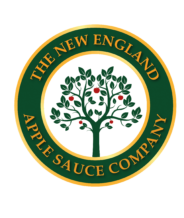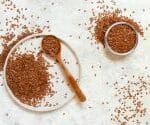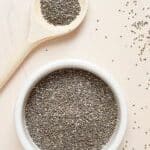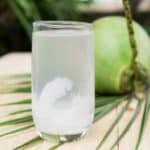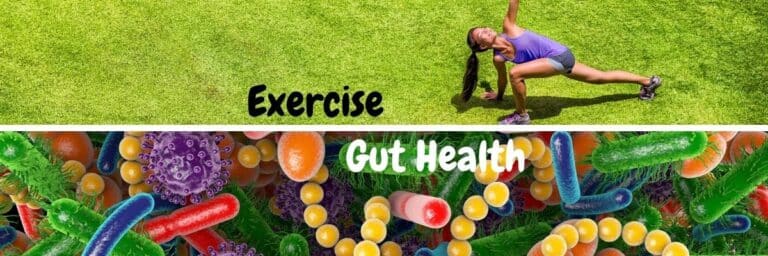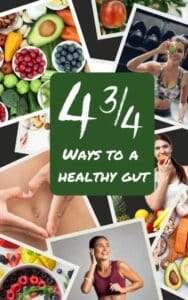
Healthy Gut – The Impact of Nutrition and Hydration!

Jazz Up Your Gut Celebration!
Well, pull up a chair and grab your note-taking utensils because we’re about to embark on a journey of gut-busting, I mean, healthy gut boosting revelations.
Listen up, your gut is like a rocking party for microorganisms, a soiree that we commonly call the gut microbiome.
And these partygoers, they are the life of the event—responsible for things like proper digestion, immune system working like a charm, and overall making you feel like a superhero.
But, just like any party, the food is the star of the show. It’s the buffet table to these tiny celebrants, and what you offer matters a ton.
You can’t expect the crowd to party on if all you offer are crisps and soda, right?
Unleash Your Gut's Inner Foodie: The Vitality of Variety
In case you’re wondering, there isn’t a silver bullet food for a healthy gut, no magic beans that’ll make everything fine and dandy in one go.
Gut health isn’t a one-dish show.
Your gut demands a potluck!
It’s a five-course meal, a smorgasbord of sorts.
No single food has the monopoly on all the vital nutrients your gut’s crowd craves.
So, here’s the thing, and this is crucial so listen up.
Variety is the spice of life, and this couldn’t be more accurate when it comes to your gut.
You gotta keep the buffet table full of diverse, nutrient-rich foods to keep those microscopic party animals happy and healthy.
Now, let’s get the gut party rolling with a few suggestions on what to serve, shall we?
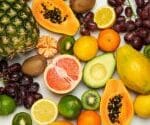
Fruits
Look for fruits that are high in fibre and polyphenols. Some of the best fruits containing polyphenols are berries and apples.
Fruits are a great source of natural sugar, even though they contribute to our daily sugar intake.
They are packed with fibre, vitamins, minerals, and other essential nutrients our body needs.
The fibre in fruits helps our body slowly absorb the sugar and prevent any spikes of sugar level.
It’s good to know that the sugar in fruits is much better for our bodies than the added sugars in processed foods.
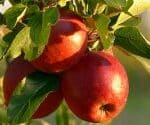
Apples
Apples are rich in antioxidants, vitamins, and minerals, keeping your body in optimal shape.
Though eating an apple a day may not keep the doctor away, studies show that eating apples regularly can improve heart health, maintain healthy body weight, and help prevent chronic diseases like type II diabetes.
Their consumption can contribute to a healthy gut microbiome, improving digestion and overall well-being.
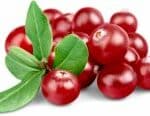
Cranberries
Cranberries are a potent prebiotic that supports the growth of beneficial bacteria, like Bifidobacteria and Akkermansia, that boost gut lining integrity, support the immune system, fight inflammation, and ward off harmful bacteria!
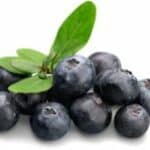
Blueberries
Blueberries are a great source of antioxidants that protect your body’s cells from damage.
They are also loaded with vitamins C and K, essential for a healthy immune system.
But that’s not all! Blueberries have prebiotic properties that help digestion, reduce inflammation, and improve gut health.
Plus, just one cup of blueberries has a whopping 14% of our daily fibre intake. So go ahead and add some blueberries to your diet – your body will thank you!

Bananas
Bananas are the powerhouse of dietary fibre, protein, potassium, vitamin B6, and manganese.
They positively affect cardiovascular health, digestion, and weight control. Try eating one with breakfast and one a few hours before bed.
These are just a few; you can click here to discover even more amazing fruits to incorporate into your diet.
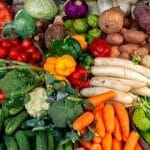
Vegetables
Vegetables – if you were like me as a child, you couldn’t wait to eat your vegetables.
I was sarcastic even then!
Try some of these to improve your gut health.
If you are concerned about losing nutrients by boiling them, try other methods like steaming, roasting, eating them raw or putting them into soups and stews.
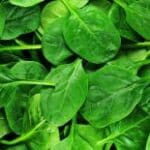
Spinach
Spinach – It’s no wonder Popeye loved spinach so much!
This leafy green is packed with nutrients and is considered one of the most nutrient-dense vegetables.
One cup (30 grams) of raw spinach contains 16% of the Daily Value (DV) for vitamin A and a whopping 120% of the DV for vitamin K, all while only containing seven calories.

Spinach Apple Smoothies
Ingredients
- 80 g raw spinach
- 100 gm unsweetened applesauce or cooked apple unsweetened
- 100 ml oat milk
Instructions
- Put all the ingredients in a blender and blitz until smooth.
- For some added fibre, put in a tablespoon of chia seeds!

Carrots
Carrots – You never see a rabbit wearing glasses, do you? The vitamin A in carrots is well known to promote eye health and good vision.
Did you know half a cup of carrots contains 2 grams of fibre?
The fibre combines soluble fibre, such as pectin, and insoluble fibre.
This makes carrots an excellent prebiotic for maintaining good gut health.
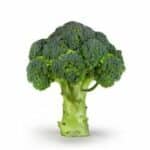
Broccoli
Broccoli – I couldn’t stand it as a kid; love it as an adult.
Guess you grow into it!
Broccoli helps the gut bacteria by also providing a source of antioxidants called glucosinolates, which are broken down by the gut microbiome.
Broccoli is an essential food for maintaining a healthy digestive system.
It contains a high amount of prebiotic fibre that aids in enhancing the quantity and variety of gut bacteria.
According to a recent study published in the Journal of Nutritional Biochemistry, the fibre in broccoli is highly effective in promoting gut bacteria.
Broccoli’s unique antioxidant properties, known as glucosinolates, are also decomposed by the gut microbiome, further enhancing its effectiveness in promoting a healthy gut.

Garlic
Garlic – – yes, me too, I would never have considered it a vegetable.
My wife wouldn’t want to be around me if I ate it raw, but it’s rumoured to have vampire-repelling properties.
Did you know that garlic is a delicious ingredient and great for your gut health?
While most studies have been conducted on animals, current findings on humans show that garlic can have numerous advantages for our gut microbiome.
The inulin in garlic acts as a prebiotic in the gut, which means they nourish the “good” bacteria and suppress the other bacteria in our gut.

Whole Grains
Whole Grains – Brown or white bread? You should probably have brown!
Grains are an essential part of our daily diet all around the world.
They give us essential nutrients that are needed to keep our bodies healthy.
Grains have three parts: the bran, which is the nutritious outer layer; the germ, which is the nutrient-rich embryo; and the endosperm, which provides food for the germ.
Whole grains are the best because they have all three parts and are very high in iron, magnesium, manganese, phosphorus, selenium, B vitamins, and dietary fibre.
It’s vital to ensure you’re eating various whole grains to keep your gut healthy.
If you can’t tolerate gluten, no worries! There are plenty of gluten-free options out there to choose from.
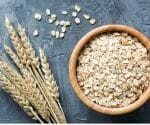
Whole Oats
Whole Oats – Including this in your eating habits regularly is a straightforward approach to significantly enhance the overall quality of your diet.
(I just wanted to discuss breakfast – having it daily is recommended.)
Oats are among the healthiest whole grains you can eat.
They’re packed with vitamins, minerals and fibre and are naturally gluten-free.
What’s more, oats are rich in antioxidants, especially avenanthramide. This antioxidant has been linked to a reduced risk of colon cancer and lower blood pressure.
Oats are also a great source of beta-glucans, a soluble fibre that aids digestion and nutrient absorption.
Just make sure to choose whole oats, such as steel-cut oats, oat groats and rolled oats.
Other types of oat, like instant oatmeal or porridge, are more processed and may contain unhealthy added sugar.
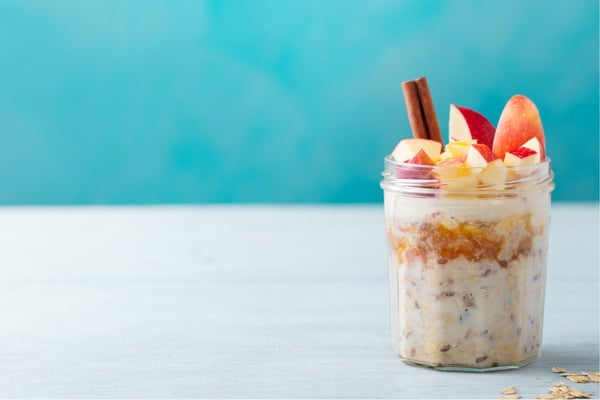
Overnight Apple Sauce Oats
Ingredients
- 1/2 cup (36gm) rolled oats (Not instant oats)
- 1/2 cup (118ml) milk of choice (I use oat milk, but any milk will taste yummy)
- 1/2 cup (118ml) applesauce (If you use our flavoured applesauce, skip the next ingredient)
- 1/2 teaspoon cinnamon or apple pie spice (optional, depending on applesauce)
For some added fibre, put in a tablespoon of chia seeds!
Instructions
- Place all the ingredients into a jar, screw the lid on, shake it, and place it in the fridge overnight.
- In the morning , remove the lid and place it in the microwave for 1 to 1 1/2 minutes or until it is the desired temperature.
- Add blueberries, bananas, or cranberries. You can also put chia, sunflower, flax, hemp or your favourite seed.
For more information about the health benefits of oats, check out this video:

Whole wheat
Whole wheat – You’ve probably heard of whole wheat before.
It’s a versatile and popular cereal grain found in all sorts of yummy foods like pasta, noodles, and baked goods.
But there’s been some talk about whole wheat and whether or not it’s good for you because of the gluten it contains.
Gluten is a protein that can cause problems for some people, but if you don’t have any issues with it, whole wheat can be a great addition to your diet!
It’s full of vitamins, minerals, antioxidants, and dietary fibre.
Just make sure you choose food items labelled “whole wheat” instead of just “wheat.”
Whole wheat has everything in it, including the fibrous husk, bran, and endosperm, all packed with nutrients.
Regular wheat, on the other hand, doesn’t have those essential parts.
So, if you’re looking for something healthy and delicious, go for the whole wheat!
it really is the healthy gut alternative.

Brown Rice
Brown rice is widely recognised as a healthier alternative to white rice.
That’s because it’s a whole grain containing the entire grain, including the bran, germ and endosperm.
Meanwhile, white rice has both the bran and germ removed.
As the bran and germ are nutrient-rich, brown rice contains more fibre, vitamins, minerals and antioxidants — 100 grams of cooked brown rice pack 1.8 grams of fibre, while 100 grams of white rice only provide 0.6 grams of fibre.
Brown rice is also naturally gluten-free, meaning it’s a great carb option if you are gluten-free.
Research has linked several compounds in this grain to some impressive health benefits.

Popcorn
That’s right, popcorn.
It is one of the healthiest snacks you can eat.
Corn kernels contain a tiny amount of water, which turns to steam when heated and causes the kernels to burst.
Most people don’t realise that popcorn is a whole-grain food.
It contains essential nutrients like manganese, magnesium, zinc, copper, phosphorus and many B vitamins.
Moreover, popcorn is incredibly high in fibre — 100 grams provide 14.5 grams of fibre or 58% of your recommended daily fibre intake!
It’s best prepared on your stove or in an air-popper.
Avoid purchasing pre-packaged microwave popcorn bags as they may contain potentially harmful chemicals.
Just take it easy on the salt and butter to maintain your healthy gut!

Salt and Vinegar Popcorn
Ingredients
- 1/4 c popping corn
- 1 tbsp coconut oil
- 2 tsp apple cider vinegar
- 1/2 tsp Himalayan Pink Salt
Instructions
- Melt coconut oil in a pot.
- Add popcorn kernels to the pot and shake until there are 10-15 seconds between pops (i.e. it’s done!).
- Drizzle over the vinegar and salt and shake vigorously until well-covered.
- Serve immediately!

Legumes
Have you heard of legumes?
They are truly remarkable for your gut health!
They will be your gut’s new best friend!
These plant-based foods are chock full of fibre, which is a crucial ingredient in promoting the growth of good bacteria in your digestive system.
You’re in luck if you’re a fan of beans, lentils, or peas! These legumes are not only tasty but also a natural way to support a healthy gut.
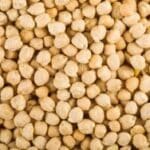
Chickpeas
Chickpeas, also known as garbanzo beans, these little globules of gut goodness are the Roger Federer of the legume world, volleying fibre and protein into your system like nobody’s business.
Each tiny sphere is packed with fibre, aiding in the bulking of your stool and preventing you from feeling like a clogged pipe.
Not to mention, they’re also high in plant-based protein – good news for all the vegans out there worried about where their protein is coming from.
Remember, the next time you’re indulging in a bit of hummus, you’re not being fancy; you’re just practising for a healthy gut!
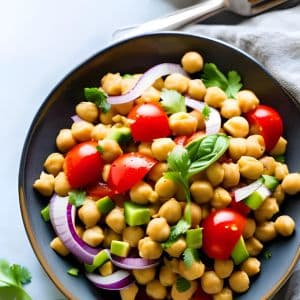
Chickpea Salad
Ingredients
- One can chickpeas
- One diced tomato
- Half an onion, chopped
- Juice of 1 lemon
- Olive oil, salt, and pepper to taste
Instructions
- Drain and rinse chickpeas.
- Mix all ingredients.
- Put in the fridge for at least an hour
- Taste and adjust seasoning if needed.

Lentils
Lentils might seem like the quiet, nerdy cousin in the legume family, but let me tell you, these guys are the secret gut health superheroes.
Lentils, dear friends, are like the Clarke Kent of the legume world: unassuming but powerful beyond belief.
They’re high in fibre and excellent for feeding your gut microbiome and promoting regular bowel movements.
Remember, a lentil a day keeps the… bathroom issues at bay.
Plus, lentils are chock-full of protein, iron, and folate.
So, while you’re enjoying your lentil soup, know that you’re not just being a connoisseur of fine foods; you’re also giving your body a royal treatment.

Black Beans
Black Beans – the dark horse of the legume family.
A favourite among Mexican food lovers and your gut microbes alike.
These small but mighty members of the legume tribe bring a whole lot to the digestive table.
They’re rich in anthocyanins, an antioxidant that fights inflammation like a ninja.
They’re also bursting with fibre, making your gut a happier place.
As you serve yourself some black beans, keep in mind that you’re not only enjoying Taco Tuesday but also nourishing your body with a festive feast for a healthy gut!
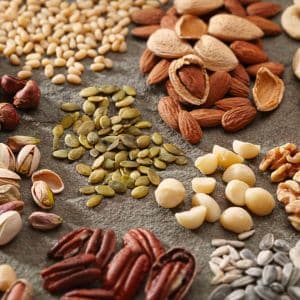
Nuts and Seeds
Let’s journey into the world of nuts and seeds, tiny powerhouses known to bolster gut health!
Loaded with fibre, healthy fats, and plant-based protein, they’re Mother Nature’s gift for a healthy gut.
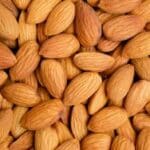
Almonds.
These gems are packed with fibre that supports a healthy gut microbiome, keeping digestion running smoothly
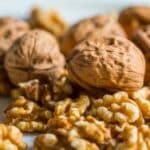
Walnuts
Rich in antioxidants and omega-3 fatty acids, walnuts foster the growth of beneficial gut bacteria, enhancing gut health and immunity.
We are moving on to seeds.
Chia Seeds
Chia seeds are like the Swiss Army Knives of the food world, with fibre to keep your digestive system on track, omega-3 to keep your brain sharp and protein to give you the energy of a caffeinated squirrel.
These tiny black pearls absorb water, forming a gel that eases digestion and feeds our friendly gut microbes.

Pumpkin Seeds
Pumpkin seeds pack a powerful punch of nutrients like magnesium and zinc, ensuring your body’s defences are more powerful than a sumo wrestler protecting a treasure trove of wellness.
They help maintain a healthy gut lining, reducing inflammation and supporting nutrient absorption.

Chia Pudding
Ingredients
- ½ cup dairy or dairy-free milk (or more for a thinner texture)
- 2 tablespoons chia seeds
- 1 teaspoon maple syrup
- ½ teaspoon vanilla extract
Instructions
- Add the chia seeds, milk, maple syrup, and vanilla to a bowl or jar and stir. Let sit for 10 minutes, then stir again once the seeds have started to gel.
- Cover the bowl or jar and place in the refrigerator for at least one hour. Chia seeds can also be made overnight for breakfast the following day.
- Stir the chia pudding before serving, and add your favourite fruit, nuts, seeds and spices.
Hydration
Think of your body as a bustling city and water, its vital life force.
Without water, our cities dry up, especially our gut neighbourhood, a health and well-being hub.
Your body is made up of between 55 and 60% water; you should consider that as your primary hydration method.
You should get about 1.8 litres of fluids daily depending on your activity level.
If you feel thirsty or notice signs of dehydration like dry mouth or dark urine, it’s a good indication that you should drink more water.
To be eco-friendly, get a reusable water bottle and filter your water at home.
Your body will thank you, and so will the planet.
In addition to water, you can also consider other forms of hydration.
Here are some options:
Fresh fruit and vegetable juices
Juices from fresh fruits and vegetables can contribute to your hydration goals while providing additional nutrients.
However, it’s essential to consume them in moderation and not rely solely on juices as they may contain natural sugars and lack the fibre in whole fruits and vegetables.

Chia Water
Ingredients
- 2 cups filtered water
- 1 tablespoon chia seeds
- ½ small lemon juiced
- ½ teaspoon maple syrup or honey (optional)
Instructions
- Combine the water, chia, lemon juice, and maple syrup in a large jar with a lid.
- With the lid on tight, give the jar a good shake to mix everything up and prevent the seeds from clumping. Then, pop into the fridge for at least 10-15 minutes.
- When ready, shake the mixture and drink immediately.
To sum up about hydration
Remember that while other beverages like coffee and tea can contribute to your daily fluid intake, they may have diuretic effects and increase urination, so it’s important to balance them with water consumption.
Ultimately, water should be your primary source of hydration, and the other options can be used as complementary sources to enhance flavour and provide additional benefits.
In conclusion (finally 😁)
In the realm of health and wellness, your gut is the big cheese, the kingpin, the conductor of the body orchestra, and guess what?
It’s not partial to a serenade of greasy fast food and sugary drinks.
This VIP thrives on the proper nutrients and hydration, making it a smooth-running, disease-fighting, mood-boosting dynamo.
Good nutrition fills your gut with diverse, beneficial microbes that throw welcome parties for vitamins and minerals, break down food, keep harmful bugs at bay, and even send “happy signals” to your brain.
On the other hand, proper hydration is the life of the party, ensuring everything is flowing smoothly (wink, wink) and your digestion doesn’t hit a “traffic jam”.
So, your call to action?
Make your gut’s day by serving up more fibre-filled veggies, fruits, lean proteins, and a whole lot of H2O.
Turn your diet into a nutrition nightclub and a hydration station – it’s like a VIP treatment for your gut.
And remember, a happy gut means a happy you.
